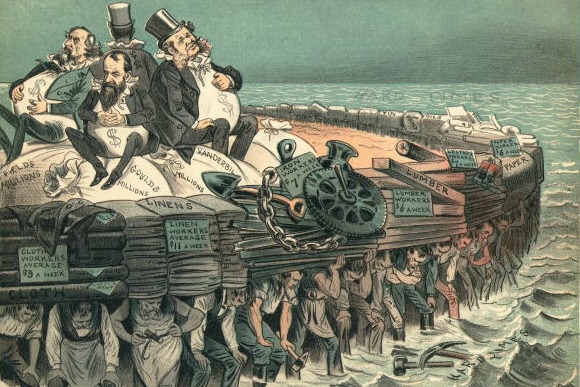Analysing Imperialism- Chris Harman – (2003)
Introduction(Drew Povey,2022)
Imperialism is the system of competition between states and companies that are based in these countries. As such it is key to our understanding of the world. Chris Harman provides an accessible introduction to this topic. Unfortunately he died in Egypt in 2009 and so is not able to provide a more up to date analysis to this topic.
The classic works on this topic were written by Lenin (Imperialism: The Highest Stage of Capitalism) and Bukharin (Imperialism and World Economy) in the early 20th century. Much has changed over the last 100 years and we have to update our theories to match.
The European’s empires may have ended, but the worlds major industrial powers are still in competition with each other for markets and raw materials. China is now the largest global manufacturing nation. The US is turning to use its military might to protect its declining share of world trade. Although its dependence on the rest of the world has reduced with the development of artificial textiles like nylon, plastics and even, with the discovery of shale oil has minimised its imports of crude oil.
The Western Europe industrial countries in alliance with the US, in NATO, put increased pressure on Russia which is a major reason for its invasion of Ukraine. The impact of this war is having a major impact on the world, its outcome will be similarly important for many countries, especially due to the exports of wheat from Ukraine and oil/gas from Russia.
Many former colonial countries have developed their economies as independent political economies and centres of capital accumulation. These include the BRICS, Brazil, Russia, India, China and South Africa. In contrast, with the development of the UN, IMF, World Bank, World Trade Organisation and various region blocks no countries are fully independent as the European powers were in the 19th and early 20th centuries.
Nigeria may be considered a sub-imperial power. The Nigerian state supports companies like those of Dangote and its banks that have spread across West and the rest of Africa. That is why it funds ECOWAS and has sent its troops to several other African countries, like Liberia. It may be influenced by the IMF and World Bank, but because of the oil income their recommendations may be ignored. The Structural Adjustment Program was implemented by Babangida in the 1980s unlike many other African countries where it was imposed by the donors.
This pamphlet provides a useful introduction to this topic, but we need to read more widely to update our understanding of how imperialism continues to change.
Download below

